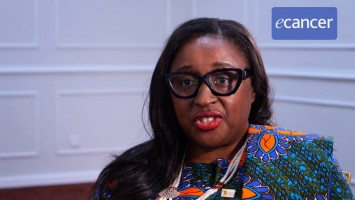SIOG 2015
Administrative and financial issues in geriatric oncology education
Dr Aldo Dettino - A C Camargo Cancer Center, Santo André, Brazil
You’re a medical oncologist but you do need to concern yourself with financial issues. What have you found in the work you’ve been doing on geriatric medicine in this Brazilian situation?
We have a lot of inequities in Latin America and also in our country but we have to try to improve that for cancer patients’ families, to improve oncology, especially to improve the care of the elderly because most of the diagnoses are on them.
In Brazil there is a difference, is there not, between the private sector and the public sector of medicine. Is that an issue in the care of the elderly?
I think it always is in any place of the world. I work in a place where we have both situations and we are in a good status but I know of places where things are harder for oncology and also for getting access to treatments. Our task here is to make geriatric oncology better seen and better taught and funded.
What are the big limitations, then? What are the things that really give you a problem in financial and administrative terms for older patients with cancer?
The budgets because we have to have money to treat, to attend, to do research, to do education. Many trainees need to be here and that’s not possible due to costs so getting treated, getting treatments and getting training is tough with a lack of finance.
What should doctors be doing about that? It’s not easy for them is it?
It isn’t but we have, as doctors, we have to fight for that and repeat, think about solutions and work together to share knowledge.
How do you persuade the financial giving bodies to take geriatric oncology seriously then? What do you have to say to them?
I hope they help and the strategy there is repeating. We have to repeat the importance and ask for their support.
In terms of education, I know you have an education programme, what are you doing there?
We are responsible for eighteen new fellows each year in medical oncology, many more in other specialties. So we try to include in the programme, even though it’s not a formal programme, some issues about the importance of geriatric oncology and its refinement. We also have a friend who wrote a meta-analysis on Cochrane about lung cancer and the elderly so we have some good stuff to show.
So what are the practical messages that you would leave doctors all over the world with, coming out of your experience in Brazil?
We think, as said from Canada, we have to think, to plan and share and do that for supporting with repetition and talking to any supporters we may have.








